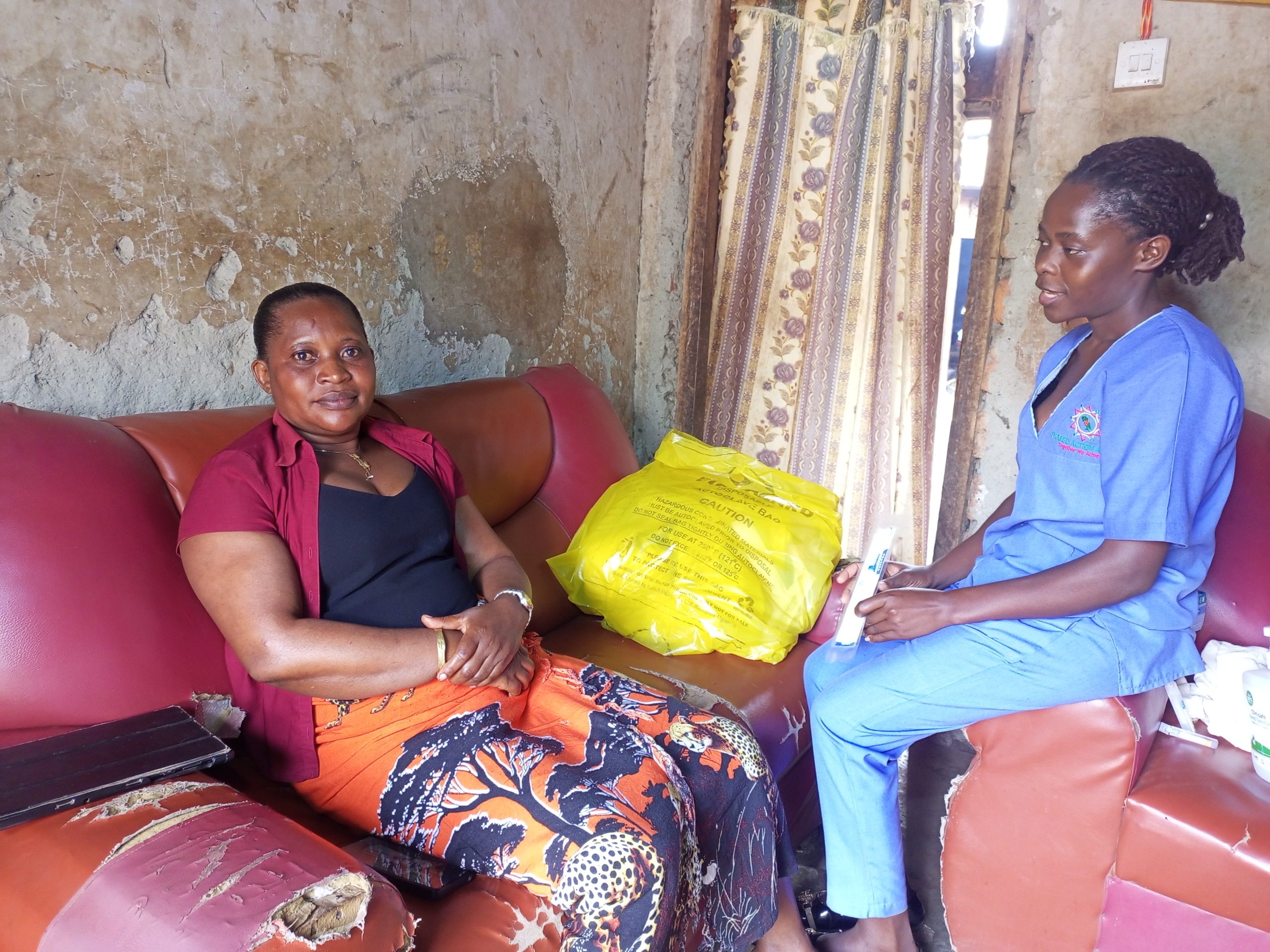“Family Planning Has Strengthened My Marriage and Brought Peace to My Home” — The Story of Namirembe Harriet.
At 44 years old, Namirembe Harriet, a resident of Kyakabindi in Isingiro District, Uganda, is a mother of six. Her journey toward controlling her reproductive health has not only transformed her own life but has also brought stability and happiness to her marriage.
For the past five years, Harriet has been using oral contraceptive pills — a decision she made after attending family planning trainings conducted by Shared Action Africa. These trainings, she says, gave her the knowledge and skills she needed to make informed decisions about her reproductive health.
“Shared Action Africa’s trainings helped me and gave me the skills to choose the best method for myself. I started with pills, and I have used them for five years,” Harriet said.
Recently, she decided to transition from the pills to an intrauterine device (IUD), a long-term method that will serve her for the next 10 years.
“Now I have taken the IUD for ten years because I am done with giving birth. My focus is on keeping my family happy, raising my children well, and making my husband happy,” she explained.
Harriet says that her decision was influenced not only by health considerations but also by the dynamics of her marriage.
“My husband does not want to use condoms. If I refused him live sex, he would start asking why and think I am cheating on him. The trainings and counselling from Shared Action Africa helped me make the right decision to protect myself, keep my marriage stable, and also give my husband the trust he needs,” she said.
She credits Shared Action Africa’s Community Outreach Family Planning Initiative, delivered through its mobile clinic program, for making it possible for women like her to access services in rural areas where hospitals are often far away.
“Shared Action Africa brought the services closer to our villages. The hospitals are very far, but the mobile clinic comes right here. I didn’t have to travel long distances, and I got the counselling and services I needed from trained health workers,” Harriet shared.
With six children to care for, Harriet says that being able to plan her family has allowed her to focus on improving their quality of life, rather than worrying about unplanned pregnancies. She is now able to dedicate more time to her home, her children’s education, and her personal well-being.
“I am not regretting a single day since I joined family planning. My marriage is more stable, my husband trusts me so much, and I have peace in my home. I can care for my children, save money, and live without the fear of getting pregnant again,” she said with a smile.
Harriet’s experience reflects the importance of accessible, community-based family planning services. Many rural women in Isingiro District face challenges in reaching health facilities, and cultural barriers can further limit their ability to access reproductive health services. Through outreach programs like those run by Shared Action Africa, women are able to receive accurate information, professional counselling, and free contraceptive services tailored to their needs.
“The rest of my days are for happiness. I feel free, and I am thankful to Shared Action Africa for keeping my family together and making my life better,” she concluded.
Stories like Harriet’s demonstrate that family planning is not just about preventing pregnancies — it is about empowering women, strengthening families, and creating an environment where marriages can thrive. By bringing services directly to communities, organizations like Shared Action Africa are breaking down barriers to healthcare and ensuring that women, even in remote villages, have the tools and support they need to make informed choices about their bodies and their futures.
As Harriet enjoys this new chapter in her life, she stands as a proud example of how access to reproductive health services can transform not just an individual woman’s life, but an entire household. Her journey is a testament to the fact that when women are empowered with knowledge and services, the benefits ripple outwards — to children, spouses, and the community as a whole.

